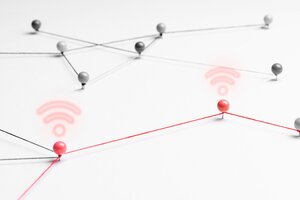TÜV Rheinland gains global Wi-Fi Alliance certification

Image by rawpixel.com on Freepik
TÜV Rheinland has announced that it has become an authorised test lab (ATL) for Wi-Fi Alliance at a global level. The company is among the first ATLs in the world, so it can support customers in Wi-Fi Alliance certification across regions.
“Becoming an ATL at the global level represents a major step in strengthening our leadership, as well as demonstrating our prowess in wireless services, particularly in the context of the Internet of Things,” said David Spencer, a director of wireless services at TÜV Rheinland North America. “We know that the technology sector is one of the most rapidly changing, so it is important for TÜV Rheinland to now be able to provide our solutions as part of the Wi-Fi Alliance because it will propel us forward in the marketplace.”
Wi-Fi Alliance is the worldwide network of companies that drives global Wi-Fi adoption. Its work includes the development of technologies, requirements, and test programmes that help ensure Wi-Fi provides users the interoperability, security, and reliability.
One of the main services to be provided by the company will be certification in Wi-Fi 7 which is expected to start operating in 2024. Also, state-of-the-art products across all industry sectors are now in development which will utilise expanded capabilities, considering the increased internet transfer speeds becoming available and more common usage of high-definition video and VR applications.
Among the main advantages of Wi-Fi 7 are that it supports a maximum throughput of 30Gbps and reduces latency for high network demands of 4K and 8K video streaming applications. In other words, it is a standard for a much faster, more capable, and more efficient Wi-Fi, which will allow to minimise latency in streaming games, as well as to boost augmented and virtual reality, by having a more stable connection.
Spencer pointed out that “for IoT manufacturers, it is essential to have Wi-Fi 7 certification during and after the production of any device, whether Bluetooth devices, computers, laptops, phones, cameras, medical devices, headsets or PDAs, because that way they ensure that it meets the legal requirements of the markets, which has faster access to trade, reduces costs, provides greater consumer satisfaction and higher volumes traded.”
Comment on this article below or via X @IoTGN
